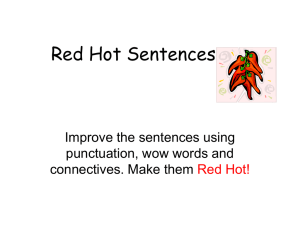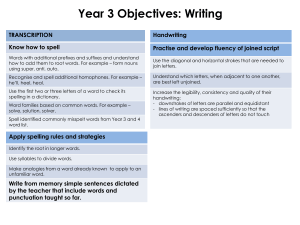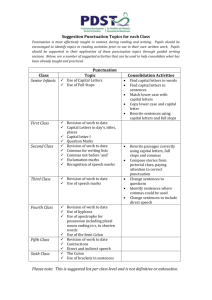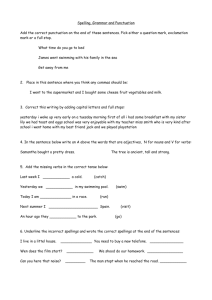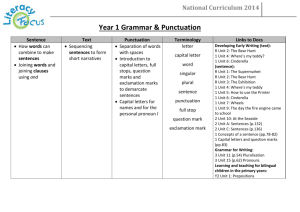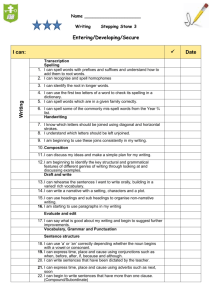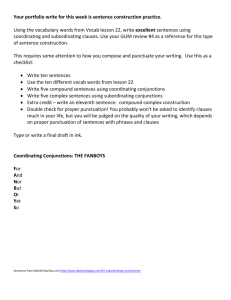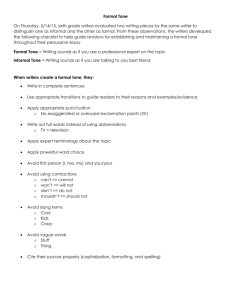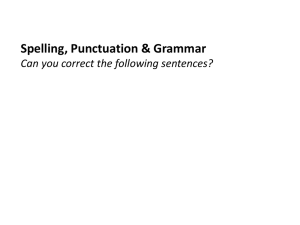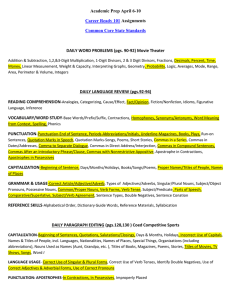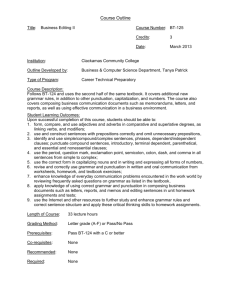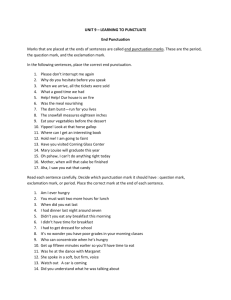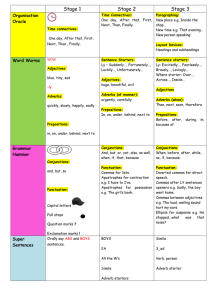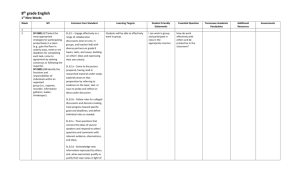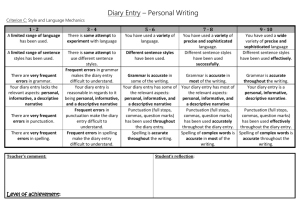Speaking and Listening Objectives
advertisement
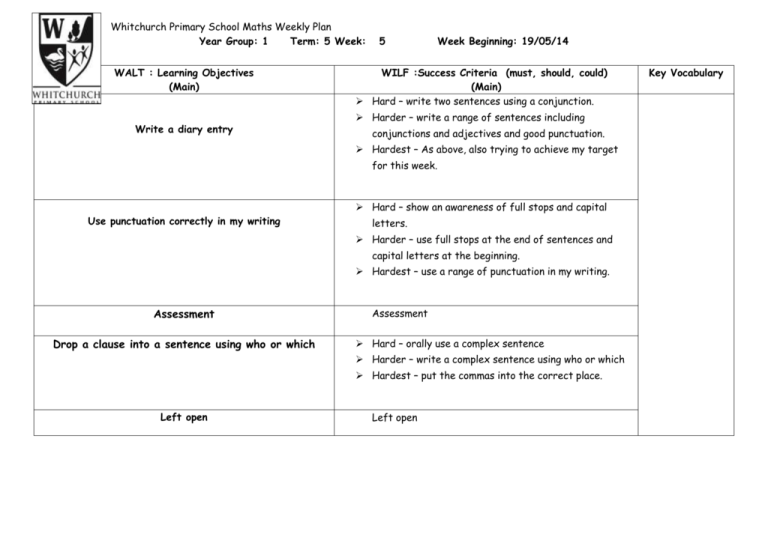
Whitchurch Primary School Maths Weekly Plan Year Group: 1 Term: 5 Week: WALT : Learning Objectives (Main) Write a diary entry 5 Week Beginning: 19/05/14 WILF :Success Criteria (must, should, could) (Main) Hard – write two sentences using a conjunction. Harder – write a range of sentences including conjunctions and adjectives and good punctuation. Hardest – As above, also trying to achieve my target for this week. Use punctuation correctly in my writing Hard – show an awareness of full stops and capital letters. Harder – use full stops at the end of sentences and capital letters at the beginning. Hardest – use a range of punctuation in my writing. Assessment Drop a clause into a sentence using who or which Assessment Hard – orally use a complex sentence Harder – write a complex sentence using who or which Hardest – put the commas into the correct place. Left open Left open Key Vocabulary Whole Class & Resources Starter Differentiated Group Activities & Resources Plenary/ Assessment Use lolly sticks to choose some children to read their writing. What good features can we hear in their diary entry? Children to share some examples of the work they have written. Main Children to discuss what they did over the weekend. Children to tell me, using the vocabulary that they know I will want to see in their diary entry. Children to write their diary entry of what they did over the weekend. Children to try to incorporate all of the things we have discussed that recounts should have in them. They should also try to achieved their target for this week. Kung fu punctuation. Have a picture up on the board (a different one to the one that children will be using in their work. Children to help me to write a brilliant description using interesting sentence starters, conjunctions and adjectives. Make a big deal out of where the punctuation needs to go. Try to include a range of it. ASSESSMENT ASSESSMENT Children to write a description to go with the picture that I have given them. Have a range of different pictures. Children need to think about using adjectives, conjunctions and interesting sentence starters and also make sure they know that when I mark it I will be looking specifically for full stops and capital letters. Try not to give the children too much guidance as this will be useful for assessment evidence. ASSESSMENT Wed nesd ay Tuesday Monday Children to help me to improve my diary entry. ASSESSMENT Thursday Grammar game Fri da y Left open Explain to children that there are different types of sentence a simple one: the boy walked to school. Compound – using a conjunction and also complex. Explain that using who or which can help us to write a complex sentence. e.g. the boy, who was crying, walked along the road. These types of sentences need to have a comma wither side of the clause which is the added in part. Tell them that this is the third use of commas we have learnt! (lists, after ly openers and now complex sentences) Left open Children to work on writing complex sentences, aiming to drop in a clause and put their commas into the right place. Hard – recap commas in lists with Miss Rowley (Theo, Keira, Jasmin, Ella, (Tilly, Bella, Ciara?). Harder – work with me on complex sentences. Share examples, recap how to do it. Explain to children that it is tricky but it shows extra brilliance in their writing if they can do it. Left open Left open Assessment for Learning feedback: general points Monday: Tuesday: TA Notes Assessment for Learning feedback: general points Wednesday: Thursday: Friday: TA Notes
